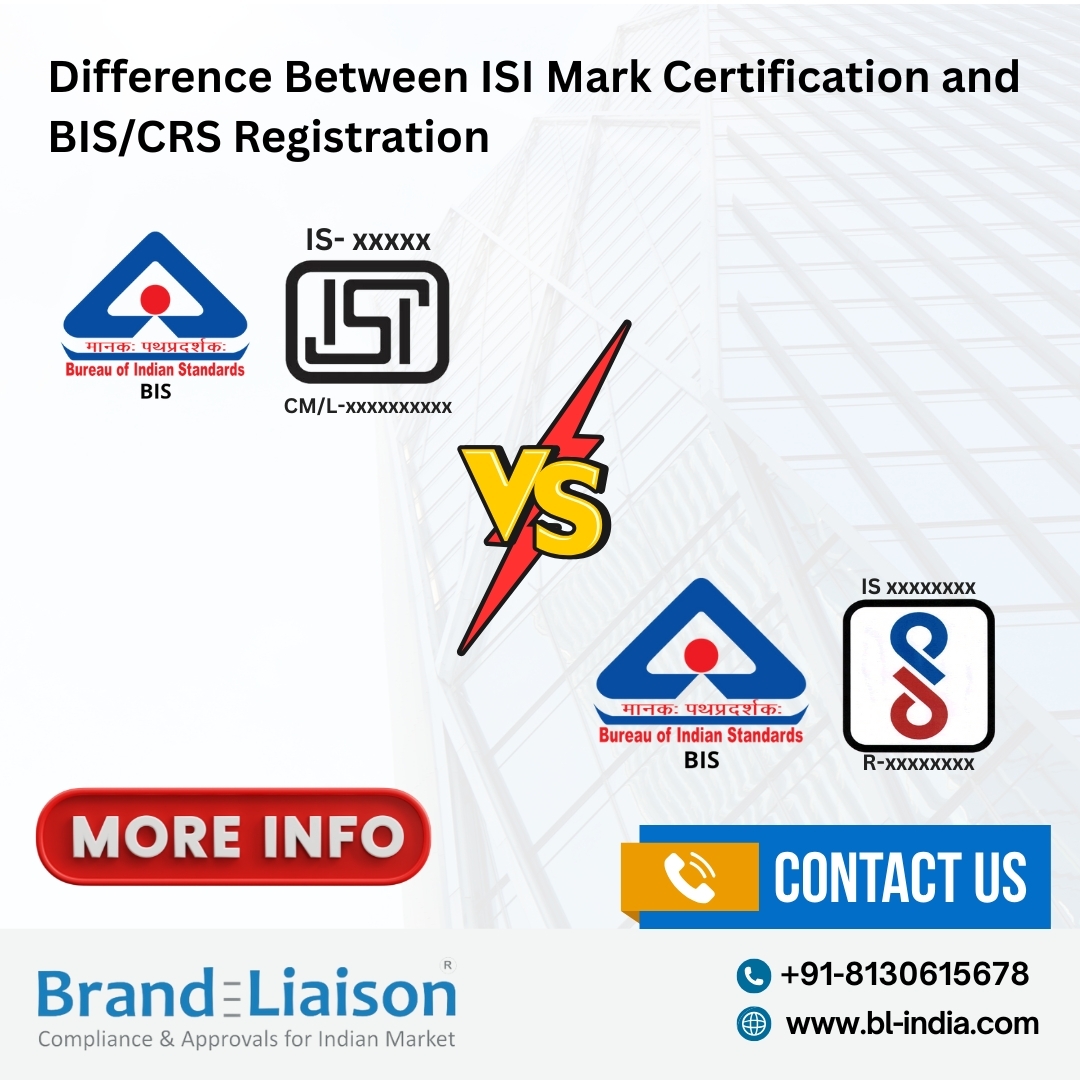Key Comparisons between ISI Mark Certification and BIS CRS Registration

Strong 8k brings an ultra-HD IPTV experience to your living room and your pocket.
The BIS consists of two main schemes under which various product categories fall. One is called the ISI certification, and the other is the CRS registration. Products such as household electrical appliances, food products, cement products, automobile accessories, etc., require a mandatory BIS certification, whereas IT & electronic goods require BIS CRS registration. The manufacturers, brand owners, and importers of these products must identify their need for the correct compliance requirement and obtain the license through the BIS official portal.To simplify the understanding of these different schemes, let us delve into the key differences between ISI certification and CRS registration.
Overview of ISI mark certification and CRS registration under BIS
The detailed differences between the two schemes of BIS are discussed below:
Understanding the ISI mark certification
The requirement of an ISI mark certificate is for products that are vital to consumer health and public safety.
- This scheme, in other words, is called BIS certification, and the products that comply with the regulations of this scheme are provided an ISI mark label to display on their products as a proof of compliance.
- Some product categories that require an ISI certificate are cement products, household electrical appliances, steel products, furniture, automobile accessories, and medical equipment.
- The process of getting the BIS certification involves mandatory testing in laboratories authorized by BIS, which is followed by a factory inspection to ensure the product’s compliance with the Indian Standards. The factory inspection and regular audits are mandatory in the process of BIS ISI certification.
- This certification ensures the quality, safety, and durability through a third-party validation.
- The standard timeline to get the ISI certificate is up to 25-40 days for Indian manufacturers and 5-6 months for foreign manufacturers. The process involves factory inspection and verification, and hence, it takes longer to get this certificate.
- To protect the consumers from fire hazards, property destruction, health hazards, short circuits, etc., the ISI certificate is mandatory for some products.
- The validity of BIS certification is for one year. It is eligible for extension for up to 2 years by submitting the required documents and fees.
Understanding BIS CRS Registration
The full form of CRS is the Compulsory Registration Scheme, which is provided for IT & electronic goods. This BIS scheme is issued by the Ministry of Electronics and & Information Technology. Let us understand the key highlights of BIS CRS registration:
- There are more than 70 IT & Electronic goods for which the BIS CRS registration is required. These products are mobile phones, LED lights, keyboards, adapters, storage batteries, laptops, etc.
- Manufacturers should make sure that their products conform to the Indian Standards. To ensure compliance, the product is tested in an authorized lab. The information about the labs is provided by the BIS. Other than that, manufacturers can also approach a consultant to get information about the labs. Only after successful testing, the registration completes.
- The manufacturers are required to display the CRS mark on their products to ensure compliance with the BIS standards. The CRS mark should contain specific information such as product name, model number, power rating, manufacturer’s name, brand name, country of origin, etc.
- However, the process of factory inspection does not take place in the CRS registration. Only in rare cases, the BIS may decide to conduct the same, but it's not mandatory. Regular inspections and audits do not take place in this scheme.
- The validity of CRS registration is two years, and it is eligible for renewal after submitting the required documents.
- The time it takes for CRS registration is shorter as compared to the time it takes for ISI certification because there is no factory inspection.
Conclusion
The BIS certification and CRS registration are essential for manufacturers to successfully survive in today’s market and grow consistently. However, sometimes for manufacturers, it becomes difficult to recognise the category of compliance. To simplify this process, they can approach a BIS consultant in India, such as Brand Liaison. Such consultancy can help them identify important certifications or registrations, help with the application, preparation of documents, handle discrepancies, and take care of the renewal process to avoid legal penalties and fines. So, if you are one of the manufacturers dealing in products that require these certifications, you can approach the consultancy today.
Note: IndiBlogHub features both user-submitted and editorial content. We do not verify third-party contributions. Read our Disclaimer and Privacy Policyfor details.


